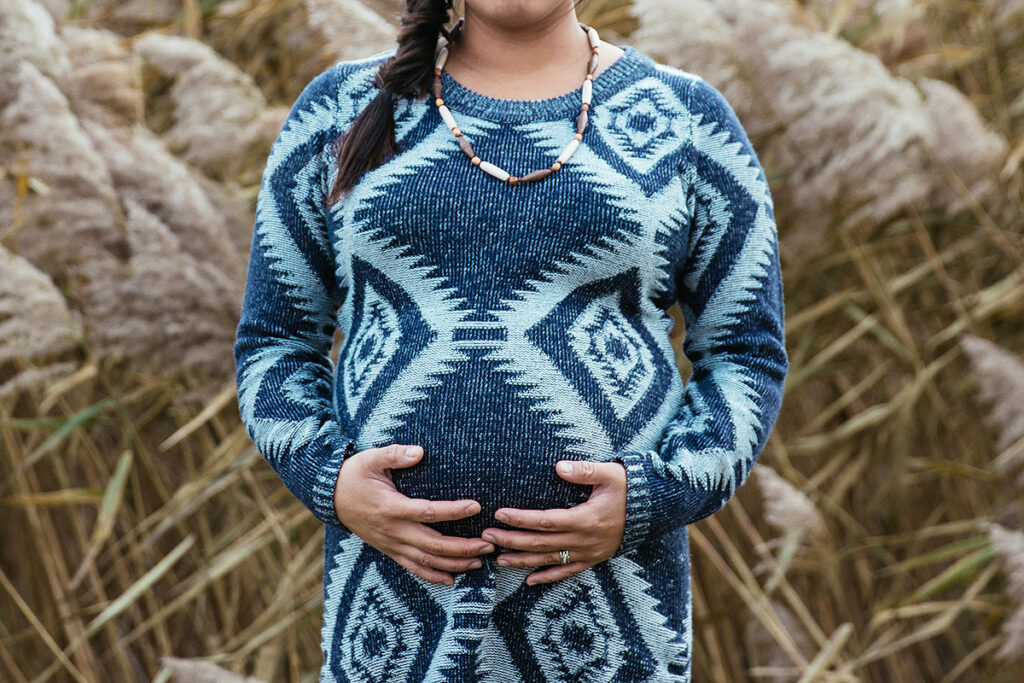Vitamin D is vital for the immune system’s normal functioning and for maintaining the body’s vitality. Pregnant women may experience vitamin D deficiency due to both metabolic changes and insufficient intake of vitamin D in the body. Vitamin D deficiency is associated with complications during pregnancy and impaired fetal development.
Vitamin D regulates inflammatory mediators. Pregnancy is associated with immunosuppression, which is necessary for the mother’s body to preserve half of the genetically alien fetus. Vitamin D stimulates the production of anti-inflammatory cytokines and promotes normal pregnancy. Vitamin D deficiency can increase inflammatory responses in pregnant women, causing more severe infections and risks to the fetus.
Interferon α-2b regulates inflammatory mediators. In treating infectious diseases in pregnant women, restoring the balance of pro-inflammatory and anti-inflammatory cytokines is essential. Therefore, in clinical practice, interferon α-2b (IFNα-2b) preparations are used to treat infections in pregnant women.
Russian scientists studied how vitamin D intake and interferon α-2b therapy as part of the complex treatment of vaginal infections in pregnant women affect inflammation and antiviral protection.
Patients & Treatment
108 pregnant patients with vaginal infections participated in the study. Age of patients: 20-40 years. Gestational age: 14-22 weeks. Patients were divided into groups, and also recruited a control group:
- Group I, 29 patients – took vitamin D preparations starting from the second trimester of pregnancy;
- Group II, 43 patients did not take vitamin D preparations during pregnancy;
- Group III, 13 patients – did not take vitamin D preparations during pregnancy, received treatment with interferon α-2b;
- Сontrol group – 23 women without vaginal infections with normal pregnancy.
Recommended preventive doses of vitamin D for pregnant women were 800-1200 IU per day, and therapeutic doses were 1500-4000 IU.
Interferon α-2b was prescribed for recurrent herpesvirus infection, acute respiratory infections, and suspected intrauterine infections. Dosage of IFNα-2b: 500,000 IU in suppositories 2 times a day for 5 days, 500,000 IU 1 per day for 10 days, then 500,000 IU 2 times a week for 5 weeks.
Pregnant women of groups I, II, and III once received antibiotic therapy for vaginal infections.
Vaginal Infections in Pregnancy
The most common diagnosis in all groups is inflammation of the vaginal mucosa associated with the fungus Candida albicans. In addition, sexually transmitted infections occurred with the same frequency: ureaplasmosis, mycoplasmosis, chlamydia, herpes simplex virus types I and II (HSV), and cytomegalovirus. Human papillomavirus was detected in groups I and II, and perineal warts in groups II and III. Group III included the majority of patients with recurrent HSV infection. This group received interferon alpha-2b treatment.
Vitamin D levels during pregnancy
At the start of the second trimester:
- Only 24%, 30%, and 23% of pregnant women from groups I, II, and III had normal levels of vitamin D. The norm is more than 30 ng/ml. In the remaining pregnant women, vitamin D levels were reduced – from insufficient (21-29 ng/ml) to severe deficiency (less than 10 ng/ml).
- In the control group, all pregnant women had normal vitamin D levels.
One week before birth:
- In group I, pregnant women who received vitamin D levels remained deficient in only 14%, but none had vitamin D deficiency. 86% of pregnant women reached normal levels.
- In groups II and III of pregnant women who did not receive vitamin D, most of them had vitamin D deficiency.
- In the control group, the average vitamin D level was preserved in 70% of pregnant women. The rest had insufficient vitamin D levels.
Cytokine Levels in Pregnancy
Pro-inflammatory cytokine IL-8:
- At baseline, in group I, pregnant women who had vaginal infections and were taking vitamin D, IL-8 levels were significantly elevated compared to healthy controls. A week before delivery in the same group I, the levels of IL-8 decreased and became comparable to those in a healthy control group.
- In group II pregnant women who had vaginal infections and were not receiving vitamin D, IL-8 levels remained elevated, with IL-8 levels higher one week before delivery than in group I at baseline.
- In group III pregnant women who had recurrent HSV infections and received only interferon α-2b, the levels of IL-8 in the week before delivery were lower than in group II – without vitamin D.
A similar result was observed with the pro-inflammatory cytokine IL-1β.
In group II, pregnant women who did not receive vitamin D also had elevated levels of the pro-inflammatory cytokine TNFα. TNFα levels continued to rise a week before delivery.
Interferon Gamma (IFNγ):
- One week before delivery, in group I, pregnant women who had vaginal infections and were taking vitamin D, IFNγ levels increased significantly compared to healthy controls. At the same time, the levels of IFNγ remained within physiological limits.
- Group II, not taking vitamin D, had no change in interferon levels.
Immunity in Pregnancy
An increase in IFNγ may mean that protection against infections has increased, which is confirmed by the statistics of past acute respiratory infections (ARIs):
- Pregnant women from group I who took vitamin D were less likely to suffer from acute respiratory infections compared to other groups, including control. Thus, 3.4% of pregnant women in the group I had ARI, and 8.7% of pregnant women in the control group had ARI.
- Group II pregnant women who did not take vitamin D were 11 times more likely to have ARI than group I pregnant women and 5 times more likely than control group pregnant women. In group II, ARI was transferred to 44.2%.
- Pregnant women from group III who received only interferon α-2b for the treatment of vaginal infections were 13.5 times more likely to suffer from ARI than pregnant women from group I who took vitamin D. In group III, ARI was transferred by 46.2%.
Conclusion
Vitamin D supplementation, as well as treatment with interferon α-2b and antibiotic therapy for vaginal infections in pregnant women, improves the balance of pro-inflammatory and anti-inflammatory cytokines and reduces the incidence of infectious complications.
Pregnant women with vaginal infections have elevated levels of the cytokine IL-8, indicating an inflammatory process. Taking vitamin D reduces inflammation by lowering IL-8 levels to normal. Interferon α-2b also reduces IL-8 levels, meaning an anti-inflammatory effect of IFNα-2b.
Vitamin D intake increases IFNγ levels and reduces the incidence of acute respiratory infections in pregnant women:
- 11 times as compared to pregnant women who had vaginal infections and did not take vitamin D;
- 2,5 times – in comparison with healthy pregnant women.
Useful article, necessary information? Share it!
Someone will also find it useful and necessary:
Reference
Влияние витамина D и интерферона α-2b на цитокиновый статус беременных с вагинальными инфекциями



